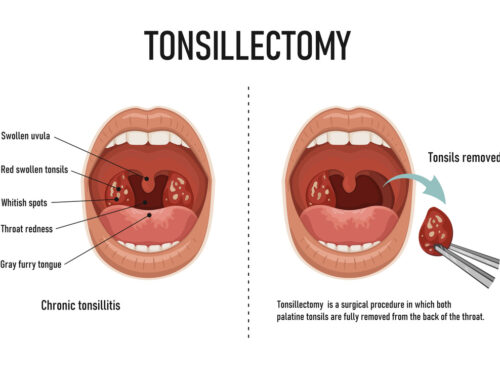Whether you’re the noisy culprit or it’s a loved one that’s leaving you with a poor night’s sleep, snoring is more common than you may think – and thousands of households across the UK and beyond struggle to manage snoring partners, relatives or children every day. At best, snoring can be a mild annoyance or even a source of jokes. But at worst, it can indicate health concerns that should be checked out as soon as possible.
We take a look at what snoring is, the causes of snoring, how you can treat snoring and more below. Read on for an in-depth look into the world of snoring – including ways to prevent or lessen this often-irritating night-time condition:
What is snoring?
The first thing you need to understand about snoring is what this particular condition is. While snoring can take many different forms – and range in decibels – they all have one thing in common. Snoring itself is caused by air flowing over muscles in your throat that relax when you sleep, resulting in that raspy, harsh sound we all know.
You may snore if you have a blocked nose and must breathe out your mouth in sleep, for example, or your snoring may only present itself when you sleep on your back. There are many different variables in snoring, which is why the treatments and options for this condition are so varied also. In many cases, snoring is entirely harmless – other than being an annoying noise for those around you. However, in some cases, snoring can be a sign of other, significant health problems.
The causes of snoring
There is no one single thing that causes snoring. Instead, snoring can be caused by a range of different factors. This includes the physical anatomy of your mouth and throat as well as any nasal problems you may have – from simple congestion through to a deviated septum. Beyond physiology, snoring can be exacerbated by the position you sleep in, the quality of sleep you’re getting and even the amount of alcohol you’ve consumed.
Being overweight may also contribute to the likelihood of you snoring, most significantly as part of a condition called obstructive sleep apnoea. Snoring may be a symptom of this serious condition, especially is other symptoms like breathing pauses, nightly chest pain, high blood pressure and choking are seen. Not all cases of snoring indicate this condition, but if you’re concerned, checking in with your GP could be a good idea.
Does snoring affect your health?
Beyond specific conditions like apnoea, snoring doesn’t affect your health. You can potentially end up with a sore throat or lower quality sleep – but loud snoring is far more likely to have a negative impact on those around you as opposed to causing problems for you individually.
How is snoring diagnosed?
Your doctor will likely check for any underlying conditions if you’re a chronic snorer, which could include a CT scan or even a sleep study depending on other symptoms you have. But when it comes to people that are just plain snorers, the diagnosis is often through the process of elimination. If there is nothing else wrong with you, it could simply be that you’re predisposed to snoring.
Treating snoring
How snoring is treated will depend entirely upon the causes of your snoring in the first place. If you only snore when you drink alcohol, for example, the obvious answer is not to drink alcohol before bed. If your snoring is a result of being overweight, losing weight may be the best way to resolve it. While snoring that is caused by the anatomy of your body can’t be so easily prevented or treated, many kinds of snoring can.
Even just changing the position you sleep in at night can make a difference. Quitting smoking, treating existing allergies to clear congestion, and sleeping enough hours per night can all contribute to a snore-free environment. While there are plenty of sprays and tablets and remedies on the market, the only practical option is nasal strips and dilators—these work to decrease airflow resistance, preventing snoring in specific circumstances.
If your snoring is part of a sleep apnoea condition, treatment is available for this specific condition. This could include the use of a CPAP machine at night that keeps your airway open, or even upper airway surgery to resolve any issues in the area that cannot be managed through other means or treatment. These methods are solely used in sleep apnoea patients as the condition can be fatal if it is not treated and managed, unlike typical snoring.
How to manage snoring in the meantime
It can often take some trial and error to get to the cause and correct treatment for snoring. As such, having ways to manage your snoring in the meantime will be a valuable resource for your loved one. Working towards a solution can be a light at the end of the tunnel for many, whether it’s just making a doctor’s appointment or making a list of different things to try to prevent snoring.
If you do choose to approach a doctor about your snoring issue, it is worth writing down any symptoms that your have alongside the snoring – such as a dry mouth, sore throat or excessive tiredness after a night of sleep. You should also list all the medications you currently take, as these may have an impact on your snoring too. You may even want to record your snoring to bring to the doctors with you so they can identify any anomalies from regular snoring.
While snoring is still an issue, investing in earplugs or even a white noise machine can be an excellent way to ensure your family still gets a restful night’s sleep. Avoiding things that may cause excessive snoring, such as stopping drinking or taking sedatives, can also be a step in the right direction. Figuring out the cause of your snoring can often be a long process, and eliminating causes one by one is the best way to get a definitive answer.
It’s important to remember that snoring problems now don’t have to mean snoring issues forever. By seeking the correct help, and working towards preventing snoring either medically or otherwise, you’re on the right track to give your loved ones a better night’s sleep and find a solution or compromise that works for you.






